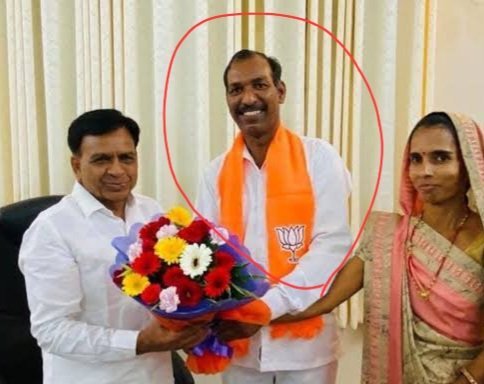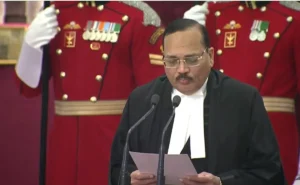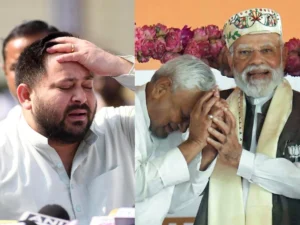When MP Leader Manohar Dhakad Gets Bail For Lewd Act On Expressway, His Lawyer Says Video AI-Generated broke, shock waves hit the political world in Madhya Pradesh. The matter is a grave accusation of indecent behaviour along a high-profile expressway route.
The court drama came when courts reviewed evidence against the leading political personality. Defence lawyers quickly responded to allegations while upholding their client’s innocence over the course of hearings. They got bail for their client, as a result.
MP Leader Manohar Dhakad: Court Hearings and Legal Representation
In court hearings, lawyers raised intricate arguments regarding video proof authenticity. The defence questioned whether present technology can produce false video content using artificial intelligence.
Major issues arose during legal proceedings:
- Video authenticity is still in dispute
- Technology experts can provide testimony on AI functionality
- Court demands evidence scrutiny in detail
- Defence asserts the manipulation of footage took place
Legal specialists point out that AI content cases pose new problems for courts across the country. Emerging technology makes it more difficult to tell genuine and forged evidence materials apart.
Defence Strategy Against Charges
Defence attorneys suggest the video contains evident signs of digital alteration utilizing sophisticated software tools. They assert rivals fabricated false evidence to ruin their client’s political image irreparably.
The legal team intends to present technology experts to illustrate how AI technologies produce realistic video content. These experts would then show that software can produce realistic footage of events that never transpired.
New deepfake technology enables producers to superimpose anyone’s face onto pre-existing video material seamlessly. Courts are now required to contend with such technological advances while assessing evidence authenticity.
MP Leader Manohar Dhakad: Political Implications and Public Response
The scandal creates shockwaves in Madhya Pradesh’s politics ahead of next election cycle. Opposition parties call for swift action while loyalists mobilize around their leader in times of crisis.
Political pundits indicate that this case may shape public perception towards technology in contemporary campaigns. The decision could set precedents for how to deal with AI-generated evidence in subsequent cases.
Public opinion is still split over the charges and defence arguments of video manipulation. Online forums hum with discussions of evidence authenticity and political agendas.
MP Leader Manohar Dhakad: Technology’s Role in Contemporary Legal Cases
This case indicates mounting concerns over artificial intelligence within legal cases throughout India. Courts struggle to adjust guidelines for assessing digital evidence that can include manipulated elements.
Legal professionals emphasize the necessity of new regulations concerning AI-created evidence in courtrooms. Existing regulations fail to respond meaningfully to these technological challenges to the justice system.
Technology experts cite that discovering AI manipulation involves advanced analysis techniques and specialized knowledge. Ordinary citizens cannot readily recognize deepfake material without professional help.
Bail Conditions and Future Proceedings
The court released the defendant on bail under special conditions limiting their movements and activities. Frequent checks with authorities guarantee compliance as the case is heard in court.
Legal processes continue as both parties make preparations to present final arguments in forthcoming hearings. Examination of evidence will ascertain whether videos are authentic or computer-generated.
The case represents a crucial test for India’s legal system regarding AI evidence evaluation. Results could influence how courts handle similar cases involving disputed digital content.
MP Leader Manohar Dhakad: Impact on Digital Evidence Standards
This controversy highlights the urgent need for establishing clear standards regarding AI-generated content in legal contexts. Courts require better tools and training to evaluate complex digital evidence effectively.
Legal analysts cite far-reaching reforms responding to technology’s increasing role in presenting evidence. Existing systems are not well-equipped to deal with advanced AI manipulation methods.
The result would redefine how courts deal with digital evidence evaluation in high-profile cases. Legal rulings made here could affect similar proceedings nationwide.
Conclusion
As this case moves forward, attention focuses on technology’s role in modern legal proceedings. The defence’s AI manipulation claims challenge traditional evidence evaluation methods significantly.
Courts must balance technological possibilities with factual evidence while ensuring justice prevails fairly. This case could establish important precedents for handling AI-generated content disputes.
The legal and political worlds are closely observed as cases move forward through India’s judiciary. Outcomes will probably affect subsequent cases dealing with controversial digital evidence materials.








Be First to Comment